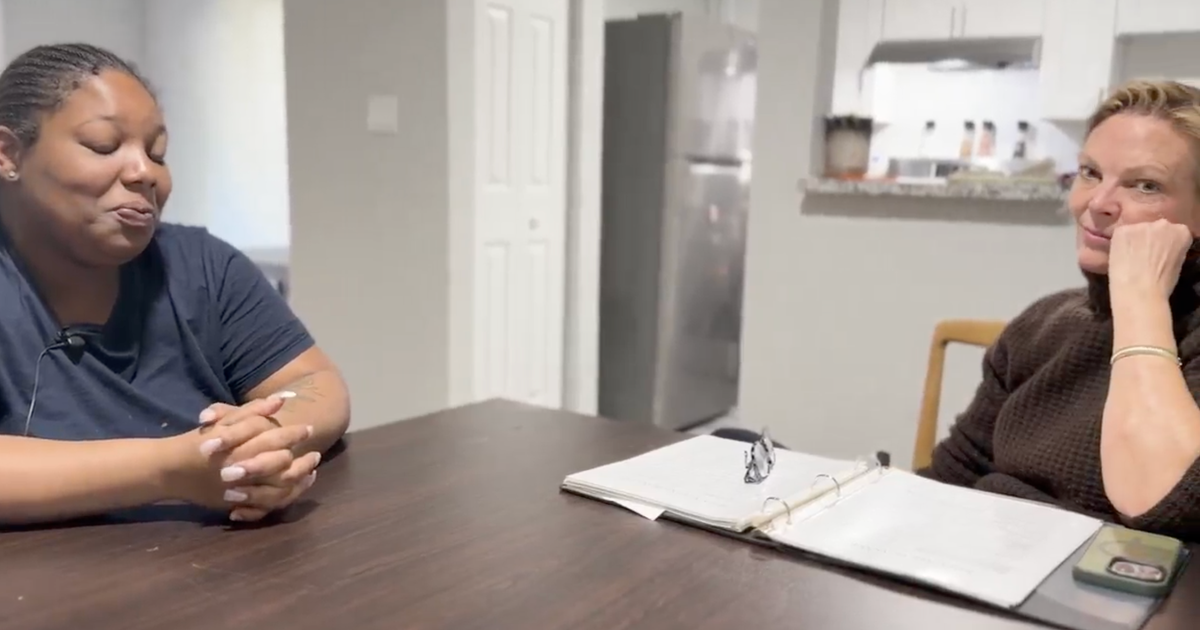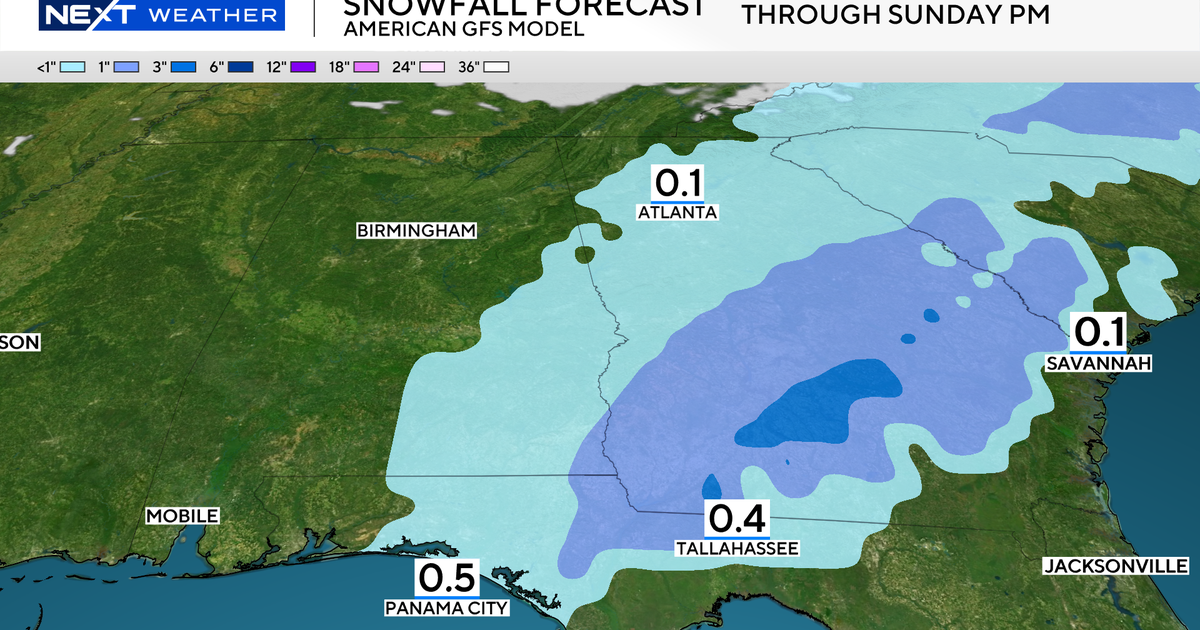South Floridians find creative ways to budget finances as housing costs rise
MIAMI — It's not your imagination: Living in South Florida is significantly more expensive than it used to be.
On top of that, a recent Bankrate survey found less than half of Americans say they can afford to pay for a thousand-dollar emergency expense from their savings.
CBS News Miami's Joe Gorchow set out to answer what people can do to balance a budget amid rising costs.
"It's nuts," shared Miami resident Munchie Haber. "It's insane. Seems like everything in Miami is so expensive."
We meet Haber as she hustles down a sidewalk with her furry clients in Brickell. Haber's been a professional dog walker for around the last five years. She's lived in South Florida for seven, moving down to South Beach first.
"I was paying $1,700," Haber recalled about her rent price when she moved to Florida. "And I had a three-level townhouse."
Rent rose rapidly over the years to the point where Miami now ranks among the worst cities nationally for renters. A Forbes Advisor article has Hialeah and Miami in the bottom tier, with over 60% of rent-burdened households. The U.S. Department of Housing and Development classifies it as a renter spending more than 30% of their annual income toward rent.
Haber gave up other things to afford living in Brickell, like her car. She and her husband ditched the wheels to cut expenses while running a few business ventures.
"Food became an issue of buying," explained Haber.
So, Haber came up with an idea to save.
"Week one down here, and then we go up to week two," said Haber, pointing to rows of lettuce she grows inside her home.
Haber grows an entire vegetable garden inside a bedroom in her now $4,000-a-month townhouse in Brickell. They have a variety of good eats.
"Yellow squash," Haber says while displaying it for the camera. "And then these are some of our zucchinis, peppers, some tomatoes."
Haber's husband tells us around 1200 plants fill the space.
"We just run this room, the logistics of it, all in, less than $500 a month," said Brandon Haber. "We get to feed ourselves, our rabbits, and our neighbors on special occasions."
They cooked up this idea three months ago out of necessity to afford to feed themselves, and "I actually rescued all of them," said Haber about her pets.
Every dollar saved at the grocery store helps. Miami takes the title as the most expensive city. According to the U.S. Census Bureau's Household Pulse Survey, the average household spending on groceries is $327 a week, 14% higher than the state average. Florida ranks fifth nationally.
"High rent, high inflation, high cost of everything," added Maria Castillo Dominguez, who serves on the Board of Directors of the Financial Planning Association of Miami.
She works from home and, through the association, provides free financial planning advice.
"Very clear needs and wants," said Dominguez about creating a budget. "You do not have to go out to eat, right? But you need to buy groceries to eat. You need clothing. You need transportation. So all of those need to be in a budget."
Dominguez suggests downloading budgeting apps to map out what you can afford to live with or without, from the cost of commuting, housing, utilities, and more.
"We have a very bad match in South Florida with high expenses and low salaries," said Dominguez.
She says it can make finding the right home much more challenging.
And it might cost you more if you're looking to buy a single-family home in Broward or Miami-Dade compared to the other places in Florida.
According to Rocket Homes, the median sales price in December of 2023 in both was higher than the state's average.
"Inventory is our biggest driver in the prices as well as just what's going on in the market," shared Haley Alonso, a South Florida realtor.
Alonso says inventory for single-family homes is down 40% from historical averages pre-pandemic in Miami-Dade. But there's good news on the way.
"I'm so excited for my buyers who have been on the sidelines for years is that interest rates are expected to drop," said Alonso. "When rates drop to 5.5%, your purchasing power will go up, considering nothing else has changed in your financial situation. Your purchasing power would go from $500,000 to $575,000."
And Alonso suggests exploring neighborhoods farther away from Miami to get the best deal.
"Don't be afraid to go a little more north or west or south than you originally planned," said Alonso. "You might be able to get a lot more bang for your buck, and it could be somewhere you love."
For Haber, doing what she loves for work keeps her spirits high, hustling with her husband to afford the rising costs of staying in South Florida.
"You have to hustle a little bit harder, but as long as you love it, it doesn't matter," added Haber.
And if you love driving in Florida, it will cost you more than living in other states. Recent studies show drivers here pay nearly $2700 in car insurance premiums annually, close to $3000 for full coverage.
That's close to one thousand dollars above the national average. So, keeping your eyes on the road to savings starts with examining your budget needs.
For additional savings tips, Dominguez tells CBS News Miami to visit the FPA of Miami's website, where you can schedule a free appointment to speak with a financial advisor.







